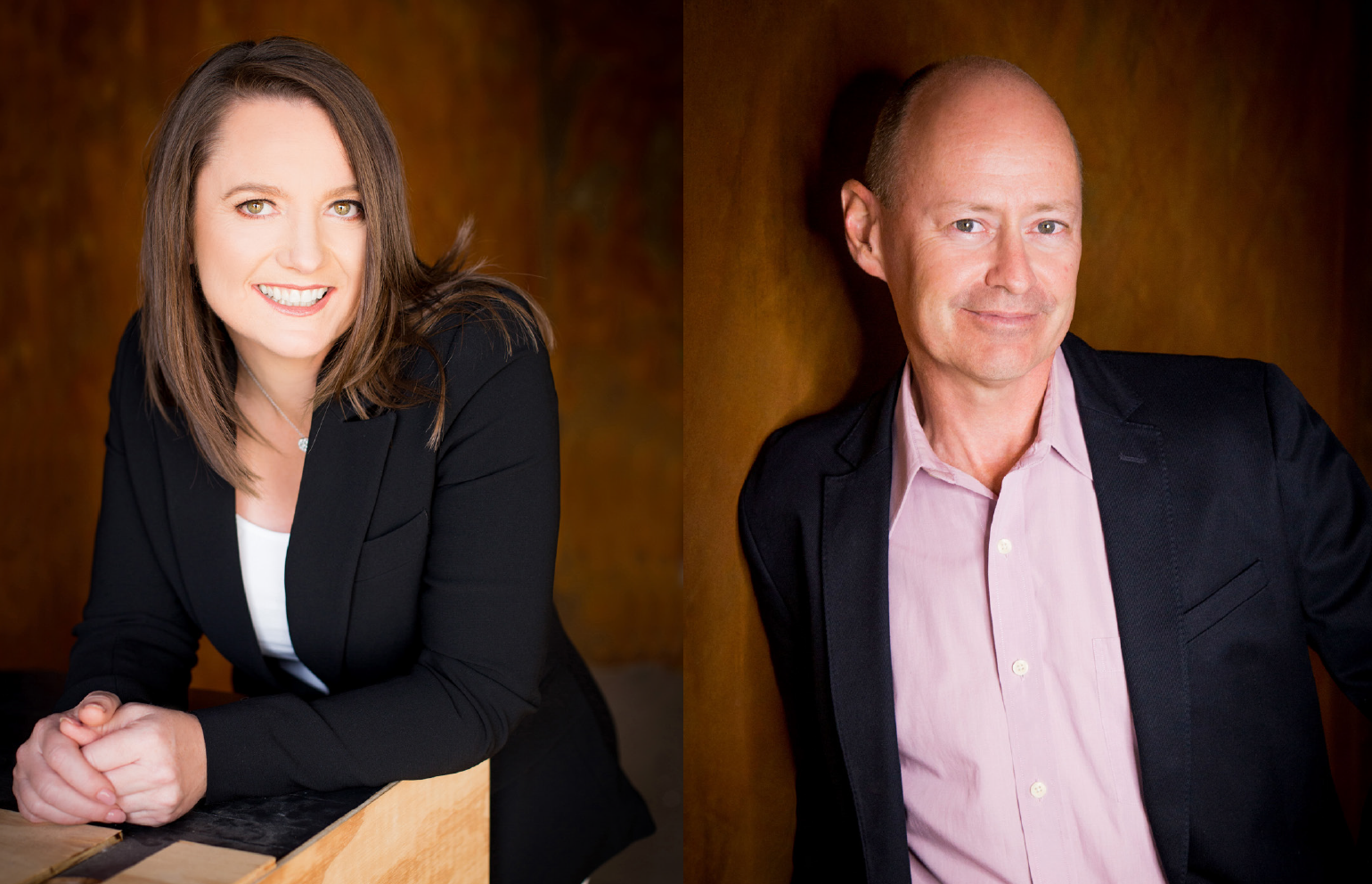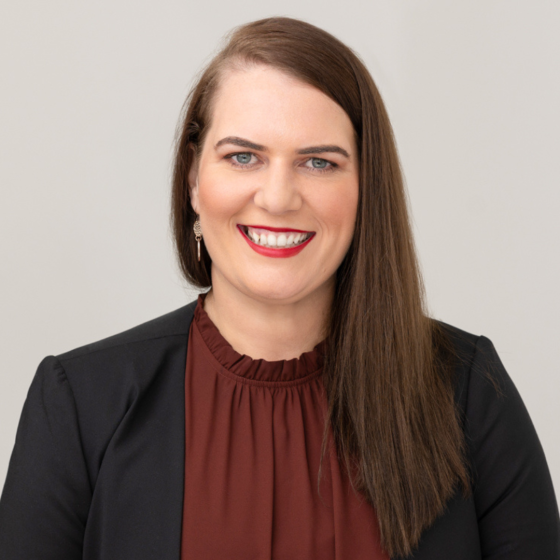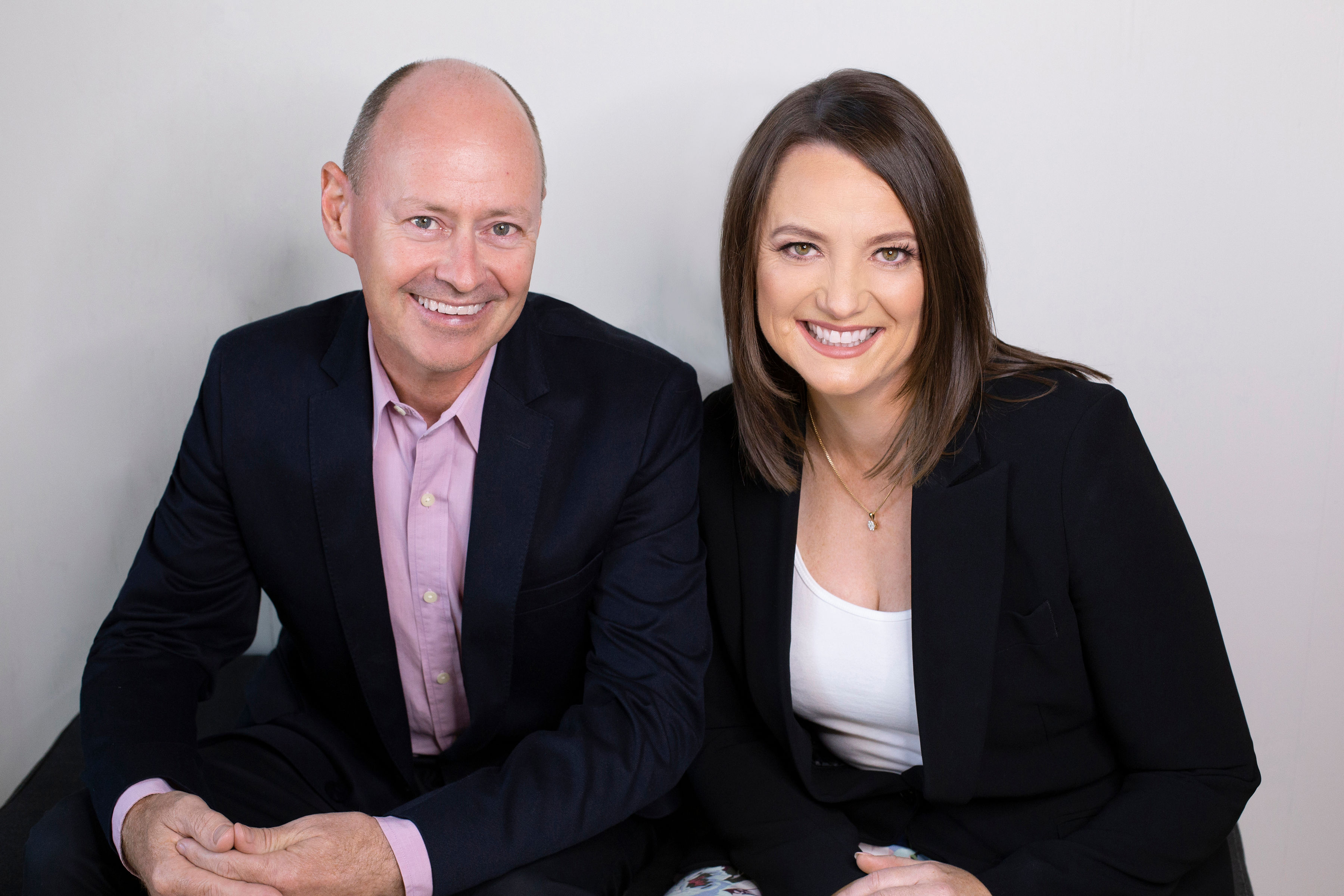Husband and Wife Team Lead the Way
In Australia, 70% of businesses are family-owned. We sat down with Stephen Wolff and Dione Mauric, a husband and wife business brokerage team to discuss their journey and how they relate to business owners. Having established Advantage Business Sales & Valuations over ten years ago, they have supported hundreds of business owners through the process of buying or selling a business. They are committed to educating business owners on the importance of a solid exit strategy and how to go through the process of preparing and selling a business.
Vanessa: Dione, can you tell me about your extensive business career and what led you to become a business broker?
Dione: I’ve always had an interest in small business having come from a family of business owners. I started as a Chartered Accountant in professional practice to learn about all different types and sizes of businesses. Once I was qualified, I went and lived overseas for about six or seven years. I worked for big corporates in Europe and spent a lot of time working for the Financial Times and PepsiCo.
When I returned to Australia, I worked with Graham Turner, the founder of Flight Centre, working specifically on business reviews for their businesses whether it was smaller or larger entities locally or internationally. When I finished there, I looked for a bit of a change and always worked in the commercial space versus accounting and decided that I enjoyed sales. I worked on projects with Graham Turner in the franchising space which lead to learning a lot about franchising so I decided I would work on selling franchises. So, I went and sold franchises specifically for about seven years and then, in more recent times at Advantage we have broadened the market of the types of businesses that we’re selling.
We’ve got the capacity to do a really broad range of Industries, which makes it really interesting, from selling something in the retail space to something in mining or engineering. We sell businesses of various sizes. There are smaller businesses helping the immigration market coming to Australia, and then we sell two to three million dollar plus businesses that might be out in Western Queensland. So we have a pretty broad range of clients.
Vanessa: I noticed you won some awards including the 2018 Sunshine Coast Business Woman of the Year and the Franchise Council’s Queensland Multi-Unit Franchisee of the Year 2 years running. How does it feel to be recognised for all the work that you’re doing?
Dione: Well, it was a wonderful experience. Being a small business owner myself, it’s a lonely space, sometimes you don’t often get to work with a lot of people. So, it was a great experience to go through that process. I think you learn a lot about the process of actually applying for the awards and reviewing your own business and coming up with plans around where you want to head and the process to win those awards actually helped us make various changes in our business to grow and become even more successful.
Vanessa: That’s a very rewarding process. Stephen, I was reading you have over 20 years of business experience. How did you end up in business broking?
Vanessa: As a husband and wife team with experience in business, do you feel it helps you relate to business owners, in particular family businesses?
Dione: Yes. It does. We meet so many mum and dad business owners that have been in business for 25, 30 years together. In my opinion, the most successful small businesses that come to the market under a million dollars, are usually husband-and-wife teams. That’s because you’ve got two people that are incredibly passionate about running a business and like Stephen and I, they have very different skills and experience. We tend to find one person being the operational expert in that business, and the other one may be the marketing expert. It’s very difficult to get someone with all the skill-set to run these businesses. So often, husband and wife teams are the more successful ones that we see.
Vanessa: What do you find is the most enjoyable part of working with business owners?
Dione: For me, it’s the passion of meeting small business owners and getting out there and shaking their hands, getting involved in their business and seeing what they do on a day-to-day basis. Every business is different, and it’s exciting when you get a phone call from someone about a business, and you would never have thought this type of business existed. As a broker, you’re in a unique position to visit the business, go through it, see their day to day operations, ask a million questions and learn something new and interesting about business. There is always something new to learn. We can learn from them, and they can learn from us. So, it is kind of a partnership when we go through this process.
At times, business owners approach us and are ready to sell. We look through their business and make recommendations to them like suggesting they focus on XYZ, which will put their business in a better position to sell next year. We are focused on an exit strategy that will get the owners the best possible outcome. This is often met with surprise as owners tend to want to be sold yesterday. So, it’s really rewarding to get out there and see owners operating in their businesses, to learn about them and see if you can add some value.
Vanessa: It must be a nice feeling, watching the business owners go through this transition, to locate a buyer and see them exit the business. It must be quite a journey?
Dione: Absolutely. We have a settlement this week, it’s a big business, and it’s the third one I’ve sold for these particular clients. They are a family out west, and they’ve got four kids, the eldest is at boarding school down to the little one that’s at home. For this family, the sale enables them to move on and make the next step in their lives. It’s exciting to help them do that because they’ve put a lot of work, blood, sweat & tears into their business for years. It’s a big opportunity for them to get the reward out of it.

Dione Mauric and Stephen Wolff
Vanessa: What size and type of businesses do you tend to work with?
Dione: The market changes all the time. So, at the moment, we are selling a lot of small cafes for people that are new immigrants coming to Australia. They are sitting on temporary visas and want to move onto a permanent visa. There are a lot of people we are helping in this bracket. They are experiencing a significant change in their lives, and we are helping them create a new future. So, that’s really rewarding.
At the other end is selling larger businesses, anything between two to four million dollars. Typically, those transactions we are selling to corporates or private equity. So it’s very different. There is a lot more volume in the smaller end, two or three businesses in the bigger end, then everything else in between. So there is quite a range of businesses we assist.
Vanessa: You touched on people purchasing businesses for immigration purposes. Are there different visas schemes per state? I’ve heard Queensland has different visa opportunities than say NSW or VIC?
Dione: Yes, there is. In regional Queensland, there is a 491 visa available. The person needs to spend $100,000 in a regional area buying a business to qualify. Once they qualify and have found the business, they can apply for a permanent visa after six months. They then need to continue running that business for two years.
Vanessa: I noticed that Advantage Business Sales & Valuations is expanding to other states. How’s that process going?
Dione: After the COVID situation, we’ve stepped back from that to focus on our small team and making sure that we are performing well in the market. I still think there is opportunity to grow into the other states. It’s all about systems, procedures, knowledge and marketing, and we have all those at Advantage. So for us, it’s about finding the right people to partner with.
We are licensed in Queensland, Victoria, South Australia and Northern Territory where we are selling businesses. I was getting so many people from those states coming to me and asking for help. So the first step is to help these business owners sell, and then we will build our pipeline for new business brokers to join our team in those states.
Stephen: This proves you don’t have to be local or nearby to be successful in representing a business as well. We’re very thorough in how we review businesses and get an understanding of how they work. So I think if you do that legwork and get the understanding, you can have a greater chance of selling that business.
Vanessa: When hiring these new brokers, is there any particular experience you look for?
Dione: I think the challenge
with business broking is that it incorporates such a very broad range of skills. So we’re looking for people with a nice solid business background, typically small business where they’ve had to make a lot of decisions themselves in their own business. We’re looking for people with a high level of financial aptitude, some understanding of legals to ensure that they have that detailed mindset to provide advice to clients. Sales skills are of course, important. So, it’s a very broad range of skills. People often think it’s all about sales, sales, sales, but I don’t feel that I’m a salesperson. I’m more of a facilitator between two parties that have a common goal. You can’t sell a business to somebody like you can sell a car. You need to facilitate the transaction because the transaction time frame could be three to nine months. It’s not just 30 minutes.
Vanessa: What are three personality traits that would make a good broker?
Dione: Firstly, someone that’s positive, they must be positive. Secondly, they must be resilient, the amount of rejection you get every day, you must be able to handle that. So positivity, resilience and thirdly, a problem-solving attitude. They’re the biggest three things I look for aside from anything else.
Stephen: I can add a few to that. I think they need to be really organised and be very good at follow up. I think they need to understand how businesses work as well. I read your interview last month, and I think you asked that question, is it necessary to have a business background. Probably not necessary. I think that it is definitely an advantage to have that as well.
Vanessa: If someone is looking to buy a business for the first time, where do you think they should start their journey?
Dione: I think that they should come and talk to me (laughing). That’s because people don’t know what they don’t know. They don’t know where to start, and this is why in our business, we have such a high focus on talking to people. They usually haven’t got a clue of what they are looking for.
I can narrow down their search and save them hundreds of hours with a few simple questions. Looking at income, I ask questions like, ‘what sort of profit do we need to sustain and grow your wealth?’ These questions help eliminate businesses that don’t earn enough money for them to live off. Secondly, I’d ask them questions about affordability and what their budget is. I can help them understand what their financial capacity is associated with their risk profile. Maybe they’ve got $500,000 to spend, but they’re only comfortable with $200,000. So it’s about bringing that reality out for them so we can shrink that search. Thirdly, it’s about the ‘can I do it?’ I always ask them, would you be comfortable doing this? ‘Would you be comfortable standing in a coffee shop day in day out?’ or ‘would you be comfortable running this engineering business?’. These questions help us to narrow down the search from thousands of businesses down to probably 10 or 15 that are currently on the market and might be suitable for them. So, it saves a lot of time.
Vanessa: Do you find that people buying businesses are first-timers or they have experience?
Dione: I see both. Typically I find that the first time business owners are looking for that smaller opportunity to start. I guess to test themselves to see if a small business is going to be right for them. The existing business owners that come to us may have recently sold a business or are looking for their next venture. They are typically looking at the larger sized businesses. They are less reliant on the franchise space. They want a business with opportunity that they can grow.
Vanessa: What are the benefits of buying an established business versus starting from scratch?
Dione: Risk is the biggest thing. The stats on failing businesses from scratch in the first five years are incredibly high. Often people will come in looking for a business that’s got a lot of opportunity to improve or is underperforming, and that’s okay. Still, I always recommend that people have a clear strategy and plan around how to grow that business. I’ve seen buyers come in and buy exceptional businesses from me and I’ve often thought wow, what do they see in this, they’re going to work hard to maintain this. Then they come back to me 18 months later with an even bigger, better business and want to sell it for more. It’s different horses for courses, but I honestly think that paying a premium for a good business with a solid handover, is worth the money if you don’t know what you’re doing.
Vanessa: When it comes to selling a business, how important is it to have an exit strategy?
Dione: Very important. We have done Exit Planning Consultations for years. We do them all around the state. Due to Covid, we couldn’t do them last year, but usually, I get on a plane to go to all the major and regional hubs around Queensland. I travel two or three times a year and talk with business owners about their exit plan. In that session, I give them an hour and a half of my time, and we talk about where the business is today, and we do a review for them. We talk about where they would like it to be when they sell, where the gap is, and the strategies behind how we can help them get there. It works for about one in ten owners, and the rest want to go to market tomorrow. Business owners tend to think about selling too late when something happens in their life that forces them to sell.
Stephen: It’s pretty common for a business owner to say ‘I don’t know anything about how to sell my business’. A lot of them are quite honest. They say, ‘we really need help, we don’t understand the process, and we want to be educated’. At the end of those meetings, it might be agreed that it’s better to wait, so they can use the information to get ready.
Vanessa: How many businesses sell strategically as opposed to being advertised on the open market?
Dione: Maybe 20% off the market. People will approach us looking for a specific type of business, so I will act on their behalf to go out and find targets. We will have some bigger businesses that are interested in selling and want us to poke around and find buyers for them without going to the open market because they don’t want their competitors to know.
Vanessa: What do you find is the most challenging part of selling a business?
Dione: They’re all challenging for different reasons. It could be a nervous buyer, or it could be a nervous seller. There’s always something new. We manage our contracts as proactively as we can. Generally, we do most of the work upfront, the due diligence, in particular, to try and make sure that there are no surprises for either parties as we go through the transaction.
Vanessa: What would you say are the advantages of going with a well-established brokerage?
Dione: I think the main advantages for either party is the experience. Stephen and I are both Chartered Accountants, and we operate in a very systemised way. We do things to a very high professional standard. So, it means that the parties involved in the transactions, the buyer, the seller, the buyer’s accountant and the buyer’s lawyer are well informed and confident about what we are telling them. It’s important how we present the business. I think that really does support us to ensure that we have more transactions settling. It’s all about the work upfront and making sure you understand the business and the environment and then working with the buyer to help them understand that.
Vanessa: We’ve had a crazy 12 months with COVID and border closures, how are businesses going in QLD?
Dione: With businesses all around Queensland and particularly in the regional areas versus say Brisbane we are seeing a fairly stringent client bidding process, we don’t take on every listing, but with the process we have, I would say a very high majority of our clients are actually performing better. Their sales are up, their profits are up, and their businesses are marketable and saleable. We’re not seeing much of the businesses that have really suffered in COVID, I don’t think. That’s not to say that they’re not around.
Stephen: I don’t think COVID has had such a big impact in QLD compared to other states like Victoria. I think that has translated across to business sales up here. We were on a couple of calls with the AIBB group during the COVID outbreak, and Victorian Brokers were pretty down at the time, it was so unpredictable. I think Queensland has been able to ride it out pretty well. Business owners and buyers seem to have confidence in the market.
Dione: Yes, I agree with that, and I think that the buyers are coming from all sorts of different groups now. We’ve got buyers that have had uncertainty with their employment or might have lost their jobs and been made redundant. So there’s a little bit of that. Many people are moving from Sydney and Melbourne who wanted to come to Queensland or make that sea-change. We see a lot of that on the Sunshine Coast. I also hear of places like Yeppoon, Whitsundays, Cairns, all the way up the coast.
We’re also seeing the immigration market being quite strong. People are looking for smaller businesses to satisfy visa requirements. Lastly, many people are just contemplating life and want to make a change, so looking at whether buying or selling a business is an option for them.
Vanessa: Why should someone join the AIBB if they are a business broker?
Dione: I’ve been a member of the AIBB for many years, and I’m also on the committee of the REIQ business broking chapter in Queensland, I’m a big supporter of both of those organisations. The AIBB has started to step up in communication, training and support for their members. They did some fantastic webinars during the COVID lockdowns to assist brokers. They provide a lot of training, and their conferences are well worth attending. When you join the AIBB, there is a course that you need to do to become a certified AIBB business broker. I certainly think it’s an excellent organisation to join and well worth the money.
Vanessa: What are your plans for 2021 as a business?
Dione: We’re going to grow the business again, and we’re on target to do that. We had a very successful six months at the end of last year, and in our business, there is a six-month lag through to settlements. We’ve just restructured our business to have more resources because we are getting busier and busier. So, we just outsourced several pieces of our administration team and document writing team to grow. In the new financial year will look to expand again with more brokers in other states.
Read Similar Articles
What is the cost of buying a business?
Successful Business sale during period of Covid-19 uncertainty
Successful sales: Three in a row for Advantage
About the author

Vanessa Lovie
CEO Bsale Australia
Vanessa is the current manager and CEO of Bsale Australia. Over the past 11 years as a business owner, she understands what it takes to grow a ...

.jpg)





